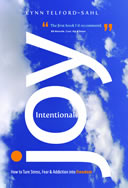 Retirement is NOT for Broke Women!
Retirement is NOT for Broke Women!
Do you have retirement visions of taking a trip to Europe, spending a month traveling the U.S., or hiking the Appalachian trail? (Me neither on the hiking.) Did you know that most women retire without enough money to live comfortably let alone travel they way they would like.
Women also have to take into retirement planning the fact that we still make only 77 cents to the man’s dollar. And, research shows that women that divorce or are widowed are out of money within 5 years. It’s not fun or comfortable to face our financial realities, but better now than later.
Do you know how much monthly income you’ll need to retire at your current lifestyle? Have you actually sat down and calculated it out? Financial denial is not the same as a PLAN.
Here are three simple steps to get you moving:
1) Know what you can expect from social security. (You can request a statement that provides estimated benefits.)
2) Project out your estimated monthly income and expenses
3) Start saving NOW – no excuses.
Email me and I’ll send you a FREE copy of an easy to use retirement estimator my husband Dave put together.
"Single, Female, Retire….Broke" Modesto Bee June 19
If you have found this article helpful, please forward it onto others.
Personal Note
 Whew – I have been caught up in fear recently because of some family difficulty. I’ve let the drama of a situation upset me and have been "what if’ing, blaming and projecting." Hmm…. This is not usual behavior for me and I’m reminded of the following quote:
Whew – I have been caught up in fear recently because of some family difficulty. I’ve let the drama of a situation upset me and have been "what if’ing, blaming and projecting." Hmm…. This is not usual behavior for me and I’m reminded of the following quote:
"Nothing ever goes away until it has
taught us what we need to know."
(Frequency by Penney Peirce)
Apparently I need more understanding and releasing of the life lesson that’s up. I try very hard to be authentic and speak my truth and it’s not easy. We all have a lens made up of our beliefs, feelings, and experiences through which we see the world. Trying to communicate what I perceive as my truth isn’t always heard. Nor do I always hear what someone else is saying if I’m letting emotion override thinking.
 If you’re experiencing family challenges, emotional ups and downs, illness, deaths, job loss or economic challenges – and who isn’t? –take a breath (or 30), try to step back and be the observer, think before responding, be gentle with yourself, get support, (thank you Dave & friends) and TRUST yourself and the Divine that at it’s core everything will be ok.
If you’re experiencing family challenges, emotional ups and downs, illness, deaths, job loss or economic challenges – and who isn’t? –take a breath (or 30), try to step back and be the observer, think before responding, be gentle with yourself, get support, (thank you Dave & friends) and TRUST yourself and the Divine that at it’s core everything will be ok.
Upcoming Events
 I’m all about empowering women to SUCCEEDand in this economy it’s taking everything we have to stay focused, centered, make $$ and have FUN.
I’m all about empowering women to SUCCEEDand in this economy it’s taking everything we have to stay focused, centered, make $$ and have FUN.
If you’re STRESSED, Overwhelmed, Too Busy, Yet Ready for Greater Success (& Balance)
Then -
THE SUCCESSFUL WOMEN’S SUPPORT GROUP is for you.
– Here’s what you’ll receive:
· Heart & Soul Connections with Self & Others
· Strategies to move your business forward – Goals, Action, Accountability
· Stress Relief Practices
· Guided Imagery & Breathing Meditation
· Vision Board
· Emotional Management Strategies
· Support (did I say FUN?)
When: Meets Monthly. First group - Monday, July 18th, 6:30 – 8:30 p.m.
Where: Unity Church 2467 Veneman Ave. (near Mall)
Investment: $25.00 each month
Register: www.lynntelfordsahl.com (look for arm in arm women on the left and click) or call 492-8745
 Money Coaching
Money Coaching
"I highly recommend Money Coaching to anyone that wants to move forward in their financial life. It rapidly shifted old $$ beliefs - very powerful."
*Do you ever wonder why you keep making the same mistakes with Money?
*Do you either avoid thinking about $$ or obsess and worry about it?
* Do you have any $$ addictive issues like overspending or hoarding?
Money Coaching shines the light of understanding on patterns, behaviors & attitudes that are not working or are limiting.
This Four Session process takes you through a specific, detailed process to understand where and how your Money Patterns & Scripts developed, Identify your Money Type, make sure your Gifts & Talents aren’t underutilized and begin the process to transform your relationship with $$ so you express your full earning & abundance potential.
Introductory Offer: $597.00 for 4 one to one and a half hour sessions - Summer Special– Register by July 1 Only $397.00
By phone or in-person sessions
CLICK HERE TO REGISTER NOW!
Spotlight

Kristina McElvy, Zumba Instructor
"I've taken Kristina's classes and they are a lot of FUN. Check out the YouTube clip below." Lynn
Kristina’s Zumba goal is to Inspire, Motivate and Help People reach their Fitness Goals. She cherishes each and every client and the friendships she makes. If you are tired of the same, boring workout, Zumba is for you! We burn up to 900 calories an hour, and have fun doing it! I also teach Zumbatomics for children ages 4-12!
Kristina McElvy, Get Fit Guaranteed
(209) 404-1306
www.modestozumba.com
kristina.mcelvy@yahoo.com
YouTube
See New Video testimonials about Lynn’s coaching and what it can do for you!!
Read Lynn's blog
Lynn Recommends:
"The Hit Book"
New York Daily News

Intentional Joy
Read the first chapter now!
Available in Book or CD!

Resources:
$$ Books
I’m a voracious reader so I will pass along books, blogs, and other information I think you’ll find helpful for your “Business & your Balance.”
Two excellent money books:
Money Magic by Deborah Price Order thru Amazon or B&N
Mind Over Money by Klontz & Klontz
 Monday, July 25, 2011 at 3:10AM
Monday, July 25, 2011 at 3:10AM  2 Comments
2 Comments  My friend Marianne Peck, therapist and writer says, "People are dumber than rats." Let me explain. She’s referring to the experimental rats that go through a maze once and, when they don’t get food, change directions or stop. Not so for people. We will keep doing the same behavior, over and over, expecting a different result. Twelve step programs call this very human behavior insanity.
My friend Marianne Peck, therapist and writer says, "People are dumber than rats." Let me explain. She’s referring to the experimental rats that go through a maze once and, when they don’t get food, change directions or stop. Not so for people. We will keep doing the same behavior, over and over, expecting a different result. Twelve step programs call this very human behavior insanity.






























